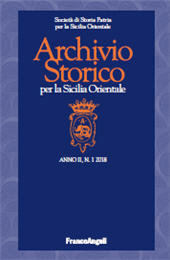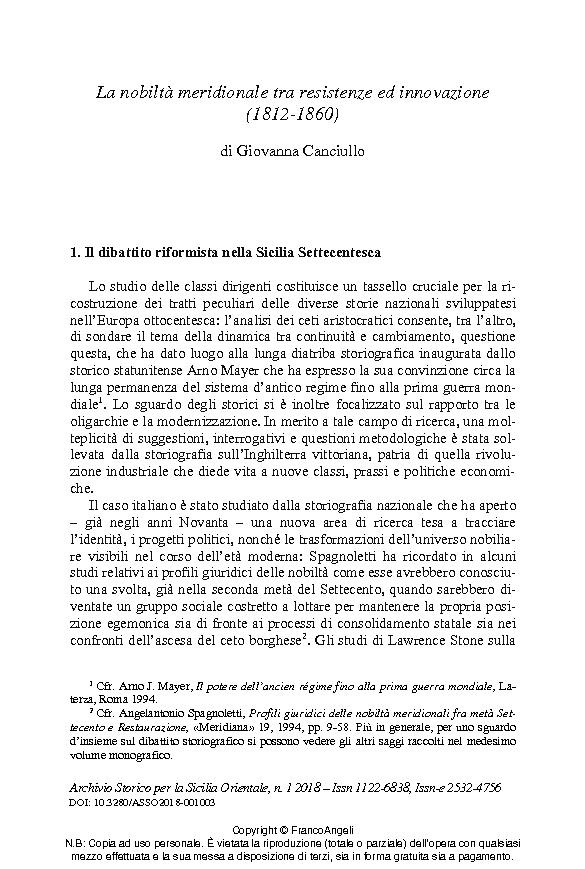La nobiltà meridionale tra resistenze ed innovazione (1812-1860)
39-60 p.
Il saggio evidenzia i riflessi, nella Sicilia ottocentesca, del coevo dibattito riformista presente in Europa, che ruotava intorno a due temi: l'applicazione dei principi della moderna agronomia e la riforma del sistema ereditario. Nell'isola entrambe queste tematiche vennero recepite dal "partito costituzionale" che però si divise in due fazioni: quella favorevole alla recezione dell'agronomia, capeggiata da Carlo Cottone, e l'altra, guidata dal nipote Giuseppe Ventimiglia, sfavorevole alla riforma ereditaria. In questa prospettiva l'eredità più importante del partito costituzionale fu il varo della Costituzione siciliana del '12 esemplata su quella inglese che sancì l'eversione della feudalità. [Testo dell'editore].
This essay highlights the reflections, in Sicily, during 19th century, of the contemporary European reformist debate, that turned around two themes: the application of modern agronomy and the reform of the hereditary system. In the island both these themes were taken by the "constitutional party", which, however, was shared into two factions: the one favorable to receive agronomy, led by Carlo Cottone, and the other, led by his nephew Giuseppe Ventimiglia, unfavorable to the hereditary reform. For the Writer the most important heritage of the constitutional party was the launch of the Constitution of 12th, shaped on the English one that sanctioned the end of feudalism. [Publishers' text].
-
Articles from the same issue (available individually)
-
Information
ISSN: 2532-4756
KEYWORDS
- Nobiltà meridionale, agronomia, riforma ereditaria, costituzione, feudalità, Carlo Cottone
- South noblesse, agronomy, reform of the hereditary system, Constitution, feudalism, Carlo Cottone



